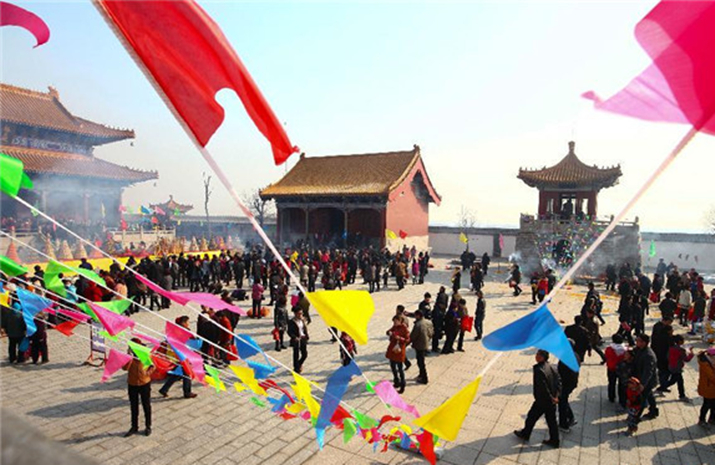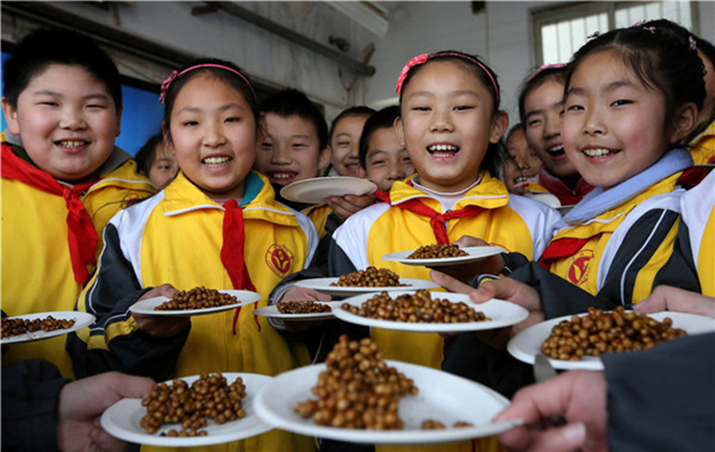|
|||||||||||
|
|
| China's Longtaitou Festival |
| The Longtaitou Festival, or Eryueer Festival, which means "dragon raises head" in Chinese, is the starting day of farm and fishery work of a year. |
 |
| People pay tribute to the dragon king of sea and god of salt on the occasion of Longtaitou Festival in Weifang, east China's Shandong province, March 2, 2014 (XINHUA) |
The traditional Chinese Longtaitou Festival, or Dragon Head Raising Festival, falls on the second day of the second lunar month every year, which refers to the start of spring and farming. The festival falls on March 10 this year.
Ancient people believed that after the second day of the second month on the Chinese lunar calendar, the rain will increase because the rain-bringing Dragon King has awakened from his winter sleep.
There is a widely known idiomatic phrase which goes, "Er yue er, long tai tou". It means "On the second day of the second month, the dragon lifts his head."
The festival is a reflection of the ancient agrarian Chinese culture, and some of the old ways to celebrate the festival are no longer in practice, but some still carry on.
 |
| File photo shows a kid having his hair cut on Leijie Square in Hefei, capital of East China's Anhui province, March 2, 2014. On the occasion of the second day of the second lunar month, known in Chinese as Er Yue Er, "a time for the dragon to raise its head", as a Chinese saying goes. Many Chinese follow tradition and get a haircut on this day, hoping it will bring good luck. (XINHUA) |
Hair cut on Longtaitou Festival for good luck
The most famous tradition on this day is to have a haircut. Some people believed that going to the barber on the second day of the second month would get rid of bad luck, while others believed it was very bad luck to get a haircut during the first month of the lunar calendar.
There's an old saying, "Cut your hair in the first month and your uncle will die." Nowadays most people pay no attention to the tradition but seniors say in the old days patrons would line up outside barber shops on the Dragon Head Raising Festival.
 |
| Students show fried beans to greet the the Longtaitou Festival in Zaozhuang city, East China's Shandong province, March 9, 2016 (JI ZHE/Asianewsphoto) |
Food connected to the Longtaitou Festival
People eat toufu balls in East China's Fujian province during this festival. People often make the tofu and vegetable balls to pray for family and business.
Traditional chengyao cakes are sold in Suzhou, East China's Jiangsu province. Suzhou has a tradition of eating chengyao cake on this day as an old saying goes, if you eat chengyao cake on Longtaitou, your waist will not hurt all year. Chengyao cake is a kind of Chinese traditional cake made with sticky rice.
People in parts of Shandong province eat fried beans to celebrate the festival.
There are also food with dragon names. Dumplings, spring rolls and popcorn are all given dragon names. Noodles are called dragon's beard (long xu ), dumpling are dragon's ears (long er), spring rolls are dragon's scales (long lin), and popcorn is called dragon seeds (long zi ).
(CHINADAILY.com.cn March 11, 2016)
|
||||
|
|||
| Copyright ChinAfrica All right reserved 京ICP备08005356号 |